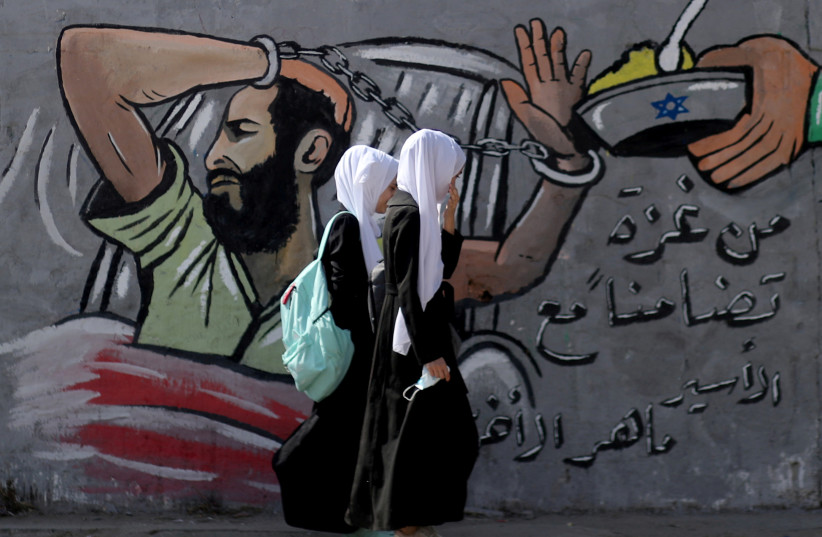Palestinian detainees held in Israeli prison under administrative detention have decided to go on an “open-ended” hunger strike in the next few days, a committee representing the inmates announced over the weekend.
The committee called on the detainees who are planning to join the hunger strike to start “writing their wills.”
Palestinian sources say more than 1,000 detainees are currently being held in Israeli prison under administrative detention, a procedure that allows the security forces to hold suspects on the basis of classified information without charging them or bringing them to trial.
Most of the administrative detainees are former security prisoners who spent time in Israeli prison for security-related offenses and terrorism, the sources noted.
Previous hunger strikes
Last year, dozens of administrative detainees went on a 19-day hunger strike in protest of the policy of administrative detention. The detainees claimed they decided to suspend the hunger strike after receiving promises from the Israeli authorities to look into their demands.

Also last year, hundreds of Palestinian administrative detainees boycotted Israeli courts as part of a campaign to put pressure on Israel to end the policy.
The planned hunger strike aims to exert pressure on Israel regarding the issue of administrative detention and protest against the death of senior Palestinian Islamic Jihad detainee Khader Adnan, who died in Israeli custody last week after an 86-day hunger strike, the committee said in a letter reportedly smuggled from one of the prisons.
It did not set a date for the start of the hunger strike.
In response to the death of Adnan, 44, Palestinian terror groups in the Gaza Strip last week fired more than 100 rockets at Israel before an unofficial ceasefire was announced with the help of Egypt, Qatar and the United Nations.
“We have become certain beyond doubt that the occupation and the Shin Bet (Israel’s Internal Security Agency) can’t provide positive results on the level of the administrative detention file unless they come under real pressure,” the committee said.
It pointed out that efforts to solve the issue of administrative detention began two years ago with hunger strikes and boycotts of Israeli courts.
According to the committee, the administrative detainees’ decision to declare a hunger strike was taken after “round-the-clock consultations and coordination” with representatives of the Palestinian factions in the West Bank and Gaza Strip. “We are facing a historic moment and we must take advantage of it,” the committee said.
A leader of the Palestinian security prisoners held in Israeli jails was quoted on Saturday as saying that a large number of inmates belonging to Hamas and other Palestinian factions would take part in the hunger strike.
The unnamed leader, who was quoted by the Hamas-affiliated Palestine Information Center, said the detainees who are planning to take part in the hunger strike were on a “suicide” mission.
“The decision to go on hunger strike was taken after the martyrdom of Sheikh Khader Adnan,” he said.
Zaher Jabareen, a member of the Hamas political bureau, said the Palestinians and their “resistance” groups stand behind the administrative detainees in their “battle” against the Israeli authorities. Jabareen held the Israeli authorities fully responsible for the consequences of the planned hunger strike and restrictions imposed on all the Palestinian security prisoners.
